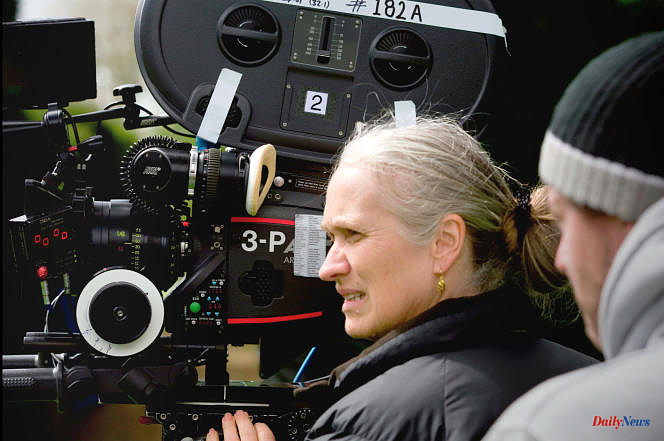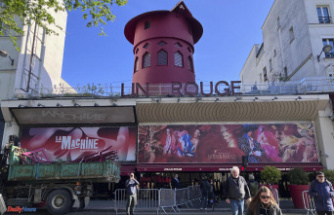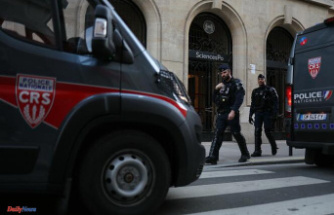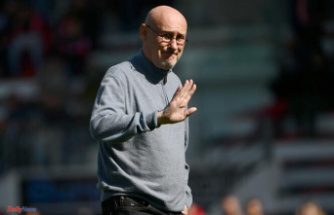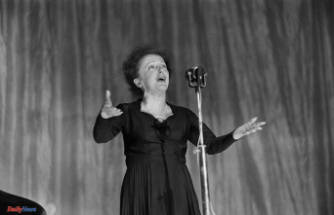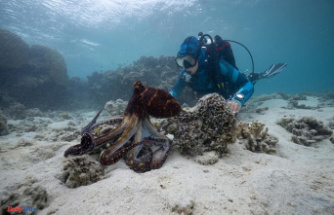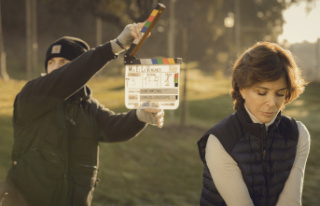In Jane Campion there is a mixture of strength and seriousness that is constantly brightened up by a gentleness, a fantasy and a lightness of being. This is what director Julie Bertuccelli was able to capture in a long-term portrait (ninety-nine minutes) of her New Zealand colleague, for a long time the only woman to have won the Palme d'Or at the Cannes Film Festival (for The Piano Lesson, in 1993).
Early Jane Campion. The cinema woman is seen seated facing the press, surrounded by many other recipients of the supreme award – all men. Asked about this situation, she replies: “Femininity seems to me to be a very strong, central dimension of humanity. We are goddesses, we are beautiful, intuitive, protective. Much of the media discourse and our view of the world is dictated by men who have no idea what women think. »
All this said with a calm as big as a smile, which is not even carnivorous, which seems to bother even more the webbed people around, many of whom are looking at the carpet or the blue line of the Croisette. On the Oscars stage, which had only rewarded Kathryn Bigelow (in 2010, for Minesweepers), Jane Campion will be more acid when asked to evoke the history of the women who competed for the Oscar of the best director. “It's a very short story, even a haiku: five nominations, one winner! »
Then calculate, by long counting on his ten fingers, the results for the male side: "350 nominations, 70 Oscars". Since then, the Oscars have rewarded Chloé Zhao, in 2021 (best film for Nomadland, best director), before Jane Campion won best director for The Power of the Dog, in 2022. In 2021, Julia Ducournau won the Palme gold at Cannes with Titanium.
A unique freedom
During the documentary, we also hear Jane Campion recall the crass misogyny of the technicians on the sets of her debut, but this is not the essence of Julie Bertuccelli's point. Because it is above all a question of cinema: from the very beginnings of the New Zealander in short films with a tone of singular freedom (including Peel, directed in 1982 and awarded in 1986, at Cannes, with a Palme d'or of the short film), until his most recent opus, The Power of the Dog (2021).
Not to mention the wonderful television series Top of the Lake, whose two seasons (2013 and 2017) constitute two great films - each in six parts (Jane Campion prefers to speak of "a novel whose episodes would be chapters") - which will have occupied between Bright Star (2009) and The Power of the Dog.
Julie Bertuccelli's film, with its finely braided editing and remarkable fluidity, circulates between interviews granted at all periods of Jane Campion's career, generous film excerpts and the making of of the set. And the whole thing makes you want to review a filmography that is altogether scarce.
For example Portrait de femme (1996), which Arte broadcasts on Wednesday March 8 at 8:55 p.m., a great classic costume film, almost in the vein of a James Ivory, was not the cruel precision of Jane Campion's gaze on Nicole Kidman, John Malkovich and the amazing Martin Donovan, in fatal pain. The film lacks Bright Star's unmistakable grace, but it shines above the fray.

